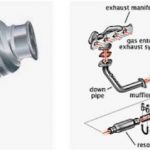Purchasing a motorcycle can be an exciting venture, whether it’s for daily commuting, recreational riding, or long-distance touring. However, for many, buying a motorcycle outright with cash isn’t feasible. This is where motorcycle loans come into play. Your credit score plays a significant role in determining whether you qualify for a loan and the terms you’ll receive.
In this comprehensive guide, we’ll explore the credit score requirements for motorcycle loans, how credit affects loan approval and interest rates, and tips for improving your creditworthiness to secure better terms.
Understanding Credit Scores
A credit score is a three-digit number that represents your creditworthiness, or how likely you are to repay borrowed money. It’s calculated based on your credit history and other financial behavior. Credit scores typically range from 300 to 850, with higher scores indicating better credit health.
Credit Score Ranges
Here’s how credit scores are generally categorized:
- 300–579: Poor
- 580–669: Fair
- 670–739: Good
- 740–799: Very Good
- 800–850: Excellent
Motorcycle loan lenders use this score to assess the risk of lending to you. A higher score not only increases your chances of approval but may also lead to lower interest rates.
Minimum Credit Score for a Motorcycle Loan
The minimum credit score required for a motorcycle loan varies by lender. However, here are general guidelines:
- Prime Loans (Good to Excellent Credit)
- Credit Score: 670 and above
- Interest Rates: Typically 3% to 7% annual percentage rate (APR).
- Loan Terms: Longer terms with lower monthly payments are often available.
- Subprime Loans (Fair Credit)
- Credit Score: 580–669
- Interest Rates: Higher, often ranging from 10% to 20%.
- Loan Terms: May have shorter repayment periods or higher monthly payments.
- Bad Credit Loans
- Credit Score: Below 580
- Interest Rates: Can exceed 20%.
- Loan Terms: Typically less favorable, requiring larger down payments or collateral.
Factors Lenders Consider Beyond Credit Scores
While your credit score is critical, it’s not the sole factor lenders evaluate. They also consider:
- Debt-to-Income Ratio (DTI)
- This measures how much of your income goes toward debt payments.
- A lower DTI (below 40%) improves your loan approval chances.
- Loan Amount and Down Payment
- A larger down payment reduces the amount you need to borrow, making you a less risky borrower.
- Employment History and Income
- Stable income and steady employment make you more attractive to lenders.
- Collateral
- Some motorcycle loans are secured, meaning the bike itself serves as collateral. This reduces the lender’s risk.
How Credit Affects Interest Rates
Interest rates for motorcycle loans vary widely depending on your credit score. Here’s how your score influences what you might pay:
| Credit Score Range | Typical APR | Example Cost (for a $10,000 Loan Over 4 Years) |
|---|---|---|
| 740+ | 3% | $10,634 total cost ($222/month) |
| 670–739 | 7% | $11,508 total cost ($240/month) |
| 580–669 | 15% | $13,800 total cost ($288/month) |
| Below 580 | 20%+ | $15,494+ total cost ($323+/month) |
Tips to Improve Your Credit Score
If your credit score isn’t where you’d like it to be, here are actionable steps to improve it:
- Pay Bills on Time
- Payment history accounts for 35% of your credit score. Automate payments to avoid late fees.
- Reduce Debt
- Lower your credit card balances and focus on paying down existing debt.
- Avoid Hard Credit Inquiries
- Limit applications for new credit, as each hard inquiry can temporarily lower your score.
- Check Your Credit Report
- Review your report for errors and dispute inaccuracies. Free reports are available annually from AnnualCreditReport.com.
- Build Credit History
- If you’re new to credit, consider a secured credit card or becoming an authorized user on someone else’s account.
Alternatives to Traditional Motorcycle Loans
If your credit score is low, consider these options:
- Co-Signer
- A co-signer with good credit can help you secure better loan terms.
- Credit Union Loans
- Credit unions often offer lower rates and may be more flexible with borrowers.
- Dealer Financing
- Some dealerships have programs for borrowers with bad credit, but ensure you understand the terms.
- Personal Loans
- Unsecured personal loans can be used for motorcycles, though rates may be higher than traditional loans.
Conclusion
Your credit score significantly impacts your ability to secure a motorcycle loan and the terms offered. While scores above 670 typically qualify for favorable rates, options exist for those with lower credit scores. By understanding the factors lenders consider and taking steps to improve your credit, you can position yourself for a better loan.
Always compare offers from multiple lenders and review the terms carefully before committing. A motorcycle is a significant investment, and securing the right financing can make the ownership experience more enjoyable and financially sustainable.

















